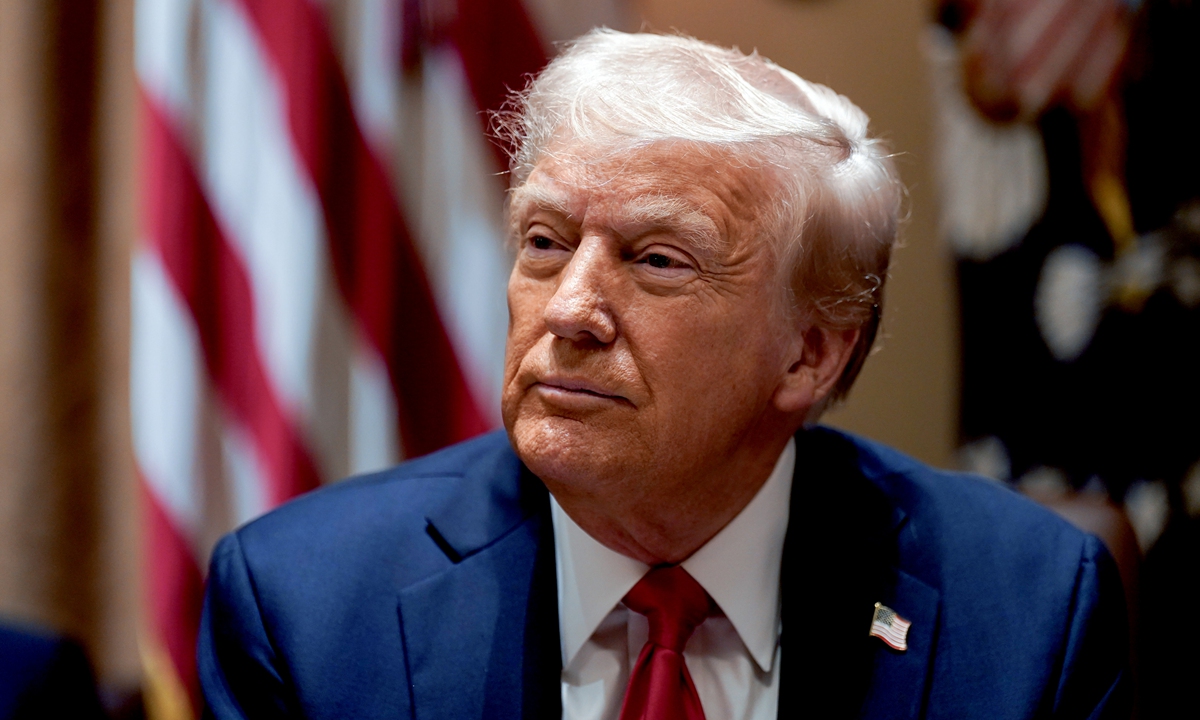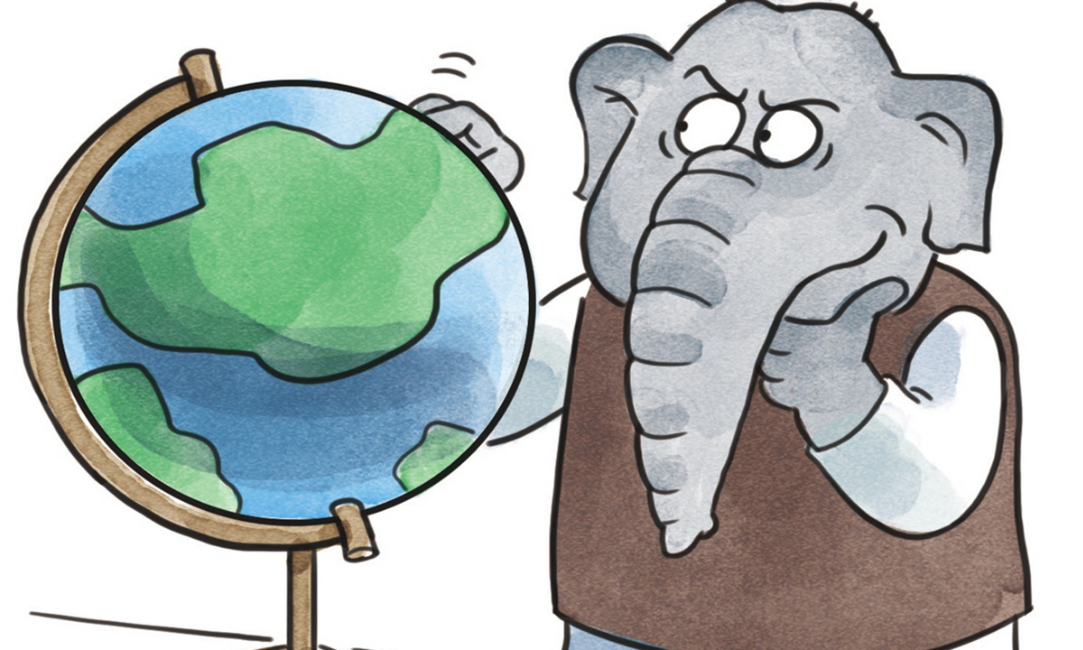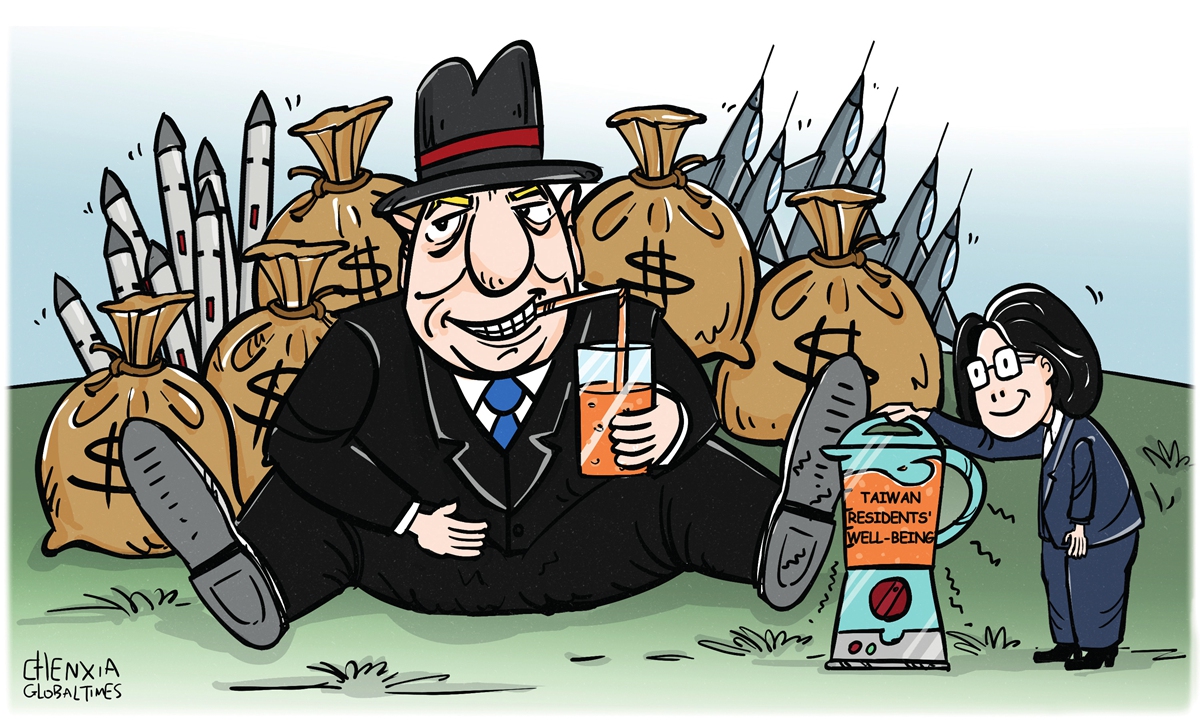Secret Pentagon memo allegedly focuses on ‘deterring China’; document faces policy inconsistency in implementation: expert

A view of the Taiwan Straits is seen from Xiamen port, in East China's Fujian Province. Photo: IC
The Washington Post on Saturday revealed a Pentagon internal guidance memo from US Defense Secretary Pete Hegseth which allegedly focuses on "deterring China's seizure of Taiwan" and shoring up US homeland defense. A Chinese expert said that the memo once again underscores Washington's positioning of comprehensive strategic competition with China as a core priority, however, the memo's contradiction with current US administration's America First doctrine means there could be policy inconsistency in implementation.According to the Washington Post report on Saturday, US Defense Secretary Pete Hegseth has reoriented the US military to "prioritize deterring China's seizure of Taiwan and shoring up homeland defense" by assuming risk in Europe and other parts of the world, according to a secret internal guidance memo that bears the fingerprints of the conservative Heritage Foundation, including some passages that are nearly word-for-word duplications of text published by the think tank last year.
The document, known as the Interim National Defense Strategic Guidance and marked "secret or no foreign national" in most passages, was distributed throughout the Defense Department in mid-March and signed by Hegseth, said the report.
Since the first term of the US President Donald Trump, the US has identified comprehensive strategic competition with China as an enduring core agenda, regarding China as the principal challenge to its global dominance. This position has been reaffirmed in this secret internal guidance memo, with the latest guidance particularly emphasizing confrontational competition with China, Li Haidong, a professor at China Foreign Affairs University, told the Global Times on Sunday.
According to the Washington Post report, "China is the Department's sole pacing threat, and denial of a Chinese fait accompli seizure of Taiwan - while simultaneously defending the US homeland is the Department's sole pacing scenario," the memo claimed, while "leaving the threat from Moscow largely attended by European allies," said the report.
"This demonstrates that the US defense establishment continues to place its alliance system as a core strategic asset," said Li. Despite current US administration's seemingly "distancing from allies", the fundamental logic of US defense strategy remains unchanged - achieving strategic objectives through alliance cultivation, manipulation, and exploitation, he added.
Washington's repeated demands for European allies to assume greater responsibilities in Europe also reveal US's intention to sacrifice European interests to maintain its perceived strategic superiority, Li noted, adding that this reveals the underlying purpose of Hegseth's Asia-Pacific tour - to forge dubious alignments with the Philippines and Japan.
Since taking office, the US President has dodged the question of US' military commitment over Taiwan island.
According to Li, the memo's guiding principles conflict profoundly with US' America First doctrine. "This divergence exposes an internal ideological struggle between the 'traditional elite faction' and 'America First faction' within the administration, creating risks of policy inconsistency," he said.
US's current radical policies contravene its fundamental national and public interests. The US will ultimately realize that forced strategic decoupling with China would incur unbearable repercussions. The final outcome will not be US administration's America First policy, but rather an accelerated decline of the US development, according to Li.
We should recognize Washington's deliberate amplification of the Taiwan question, Li noted. The US persistently attempts to sensationalize Taiwan region as a flashpoint, essentially instrumentalizing the matter to create regional instability in the Asia-Pacific and thereby constrain China's development trajectory.
Such an extreme policy direction represents only the ideology of a small number of extreme conservative forces, and interests of military-industrial complex, and will be opposed by other interest groups, said Zhuo Hua, an international affairs expert at the School of International Relations and Diplomacy at Beijing Foreign Studies University.
"For the secessionist Democratic Progressive Party (DPP) authorities, the US posture outlined in this document is not something to be happy about," Zhuo said. "Pressuring Taiwan island to increase military spending and purchase US military equipment is essentially forcing it to pay a 'protection fee' that Washington is unlikely to honor."
China is not a mirror image of the hegemonic US. The US needs to stop viewing its ties with China from the outdated Cold War perspective, stop containing China in the name of "strategic competition", and stop aiding or abetting "Taiwan independence" in any form, Chinese Foreign Ministry spokesperson Guo Jiakun said during a regular press conference on March 26, in response to media inquiry regarding a report by the US intelligence agencies claiming China remains the top military and cyber threat to the US and Beijing was making "steady but uneven" progress on capabilities it could use to "capture Taiwan."



